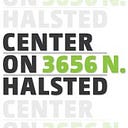Speaking of Identities: The Importance of Inclusive Language and the LGBTQ Community
by Katie Murray, Community Engagement Intern
Language matters. It has the power to offer the validation and acknowledgement of identities, and also has the power to deny it. This is why it is so important to be aware of the impact of the language you use and the context in which you are using it, and why people need to make a conscious effort to use language that is inclusive and validating for everyone — especially the LGBTQ community. Affirming and supporting people for who they are and how they identify is an integral part of creating equal space for the LGBTQ community; inclusivity within language is just as important as any other kind of inclusivity within a culture.
Oftentimes people use language that they either assume to be inclusive, or simply do not consider the inclusiveness of their words at all. This can range from using phrases such as “you guys” to address a group of people or “mankind” to describe everyone on Earth. These phrases could easily be replaced with “you all” and “humankind.” A large majority of us have been normalized to this type of language throughout our lives, which speaks to how much our language is lacking in inclusivity. The LGBTQ community should not have to feel like they are not included in something, or feel invalidated in relation to something, just because we are not being aware of how we use language and how that affects people.
Assumptions also play a role in not affirming and harming LGBTQ people. It has been ingrained in us to make assumptions based on peoples’ outward appearances, but that is not an okay thing to do. Just because we think someone fits our preconceived notions of a gender stereotype does not mean they identify as such. It is not safe to assume that someone identifies a certain way based on how they present themselves; it is always better to be aware of this and to politely ask how someone would like to be addressed instead of making an assumption and running the risk of invalidating their identity. This is relevant both with pronoun usage and with addressing someone with a title such as “ma’am,” “father,” “sister,” “sir,” etc. When we use these terms, unless we have already clarified with the person beforehand, we are using them based on assumptions on how they look and how they identify. An example of this is when we think someone with a child looks like a mother based on our assumptions as to what mothers should look like; we need to clarify how they identify before we address them as such — maybe the person identifies as they instead of her or he and therefore prefers to be addressed as parent/caretaker instead of mom. Ask when it’s appropriate, always make a mental note to not make assumptions, and correct yourself when you do.
Language is crucial when it comes to the trans community. Whether we are speaking directly to someone in the trans community or speaking about the trans community in general, we need to make sure that we are using inclusive and identity affirming language. A good start with this is to make sure that you are not using language that implies that being trans is something that happened to the person or the community. They are who they are, and it is important not to act or sound as though they have no agency in their identities. It is also important to be aware of naming. When people tell you their name, that is their name; it is what you should address them by and what you should use if you speak about them. Using any other name is harmful and disrespectful. Be conscious of the impact a name can have on someone; it may seem like a small thing, but to people in the trans community, and the LGBTQ community as a whole, it is a big thing that has a big impact on people and their identities.
Being aware of the language we use and the impact that it can have on people in the LGBTQ community is key to creating inclusive and identity affirming spaces. Taking a second to check on our assumptions before we address someone and categorize them as someone or something that they may not be is a step in the right direction for equality. Remember, the best way to know how someone would like to be addressed is by asking them. Just ask.
